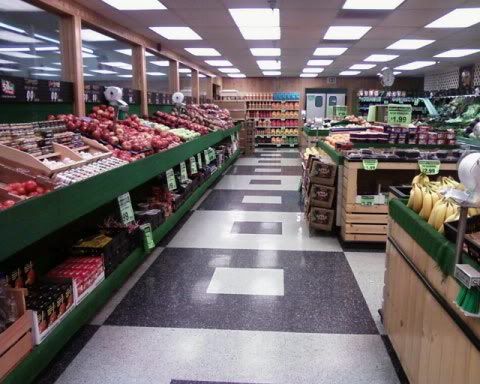Either way, here you are.
And while you're here, you've probably see the picture up top of the guy with the 14-inch saute pan, and figure he's probably compensating for something (and you'd probably be right!) Then you probably looked at the picture to the immediate right and saw an angry looking guy in chef whites and figured "Eh, probably another pretentious blowhard thinking he's some food guru. Last thing I need is someone who thinks they have all the answers to what I should be putting in my mouth."
And you know what? You are absolutely right. The last thing anybody out there needs is someone telling them how to eat.
For anyone in the know, certain culinary individuals, and of course we won't say who, have been making a lot of assumptions about you. About your lifestyle, about how you eat, and how you're supposed to eat. I take some offense to this, since this article refers to me as well, and this person knows me about as much as he knows you. And just to be clear, despite the fact that I occasionally get to wear this nifty white outfit and happen to share some of the same background as the person in question, he doesn't know me.
And I realize that I don't know you either. But I'd like to.
When I created this blog, my intent was clear: Don't feed anyone who reads it a bunch of shiny useless photographs coupled with excessive recipes spawned from my overactive imagination. Let this be a place where people can learn to be better cooks, and maybe even get inspired to do it more often.
I stand closer to my mission statement now more than ever.
As I've become more acquainted with culinary (I won't say competent, that may be asking a bit much) I've seen many an unsettling trend. On the one side, you've got the entertainers. People who stare in food-based programming, and are expected to whip out anything from one to several recipes in a single sitting, all the while being big toothed and wide eyed while they do it. Once a great source of inspiration for the home cook, now they seem to be focusing more on their hair and wacky antics, than they do on delivering a meal that someone can prepare.
On the other side rests the intellectuals. People in the know who are either established with, or well known by, the culinary profession. These folks post lengthy articles on quality eating establishments, and fantastical recipes that look great on glossy pictures, but tend to fall on the outskirts of what a person is capable of cooking. Then they talk loud and proud about the majesties of cooking one's own food, and denounce those who don't do it. "Food magazines are going out of print," they cry "It's because people don't cook any more." The collective pats themselves on the back, as the cry of the Waahmbulance is heard across the blogosphere.
All the while, good people are still left trying to figure out how to put something good on the plate.
Look, I understand you're busy. I understand that sometimes it's easier to grab some take out and not bother with dinner. And I also understand that somewhere along the line, making a meal got very confusing. I can't free up your schedules for you, and I can't force you into your kitchens to make dinner. And though I once got a little berating at those who weren't cooking for themselves, I reckon I've matured a bit to see past that, and will try to look at this with new eyes. And those new eyes have only one question for you out there:
Do you want to cook? Despite the pressures of time and responsibilities, would you like to make more meals for yourself? If the answer is no, then please, by all means, navigate away from this page. Your life is yours, and you should lead it way you want to. No harm no foul.
If you said yes, then let's see if we can help each other out.



